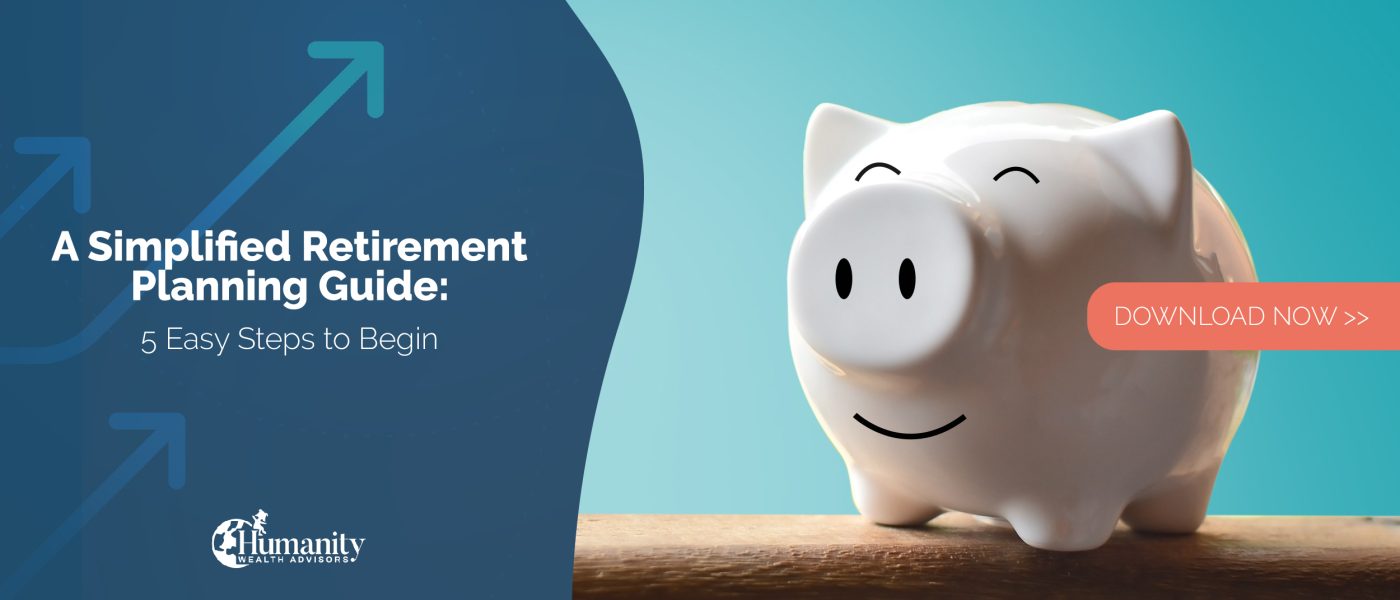Retirement planning is a crucial step in preparing financially for your future. However, people sometimes need help understanding the subtler details and nuances of achieving an adequate nest egg. Whether you’re an experienced investor or just beginning to save for your golden years, it’s important to know both what strategies work best and which mistakes are commonly made by the financially independent.
In this article, we’ll identify four of the biggest retirement-related high-net-worth financial planning missteps—and how they can be avoided. By taking preventative measures now, you can help ensure that your golden years won’t be a time of pinching pennies.
This article addresses the following:
- Not planning for retirement early enough
- Underestimating how long you’ll need income
- Investing too conservatively/aggressively
- Lacking a solid estate plan for your legacy
1. Not Planning for Retirement Early Enough
Even for high-net-worth individuals, not planning for retirement early enough can be a costly mistake. Without careful retirement planning that includes investing over time and creating a reliable income stream for your retirement-age self, a comfortable economic future is far from a sure thing.
It’s no secret that inflation and bear markets can have a devastating effect on everyone’s retirement nest egg. That’s why it is so important for the affluent to plan for retirement early (if you want to stay that way). Getting proactive about it can help keep your savings and assets less susceptible to these forces over the long term.
However, there are plenty of positive reasons to get started, as well. For instance, contributing to a retirement account(s) early in life allows you to take advantage of compounding growth (potentially over multiple decades). This can help ensure that inflation doesn’t erode the money you’d count on for survival in your old age.
Retirement may seem like a distant dream right now, but the time to start planning is already here. One upside of today’s supply chain issues and stock market uncertainty may be once-in-a-lifetime investing opportunities. Those who do their homework first before investing may find, for example, shares of the next Dell going for a fraction of what they’ll be worth in the future.
It bears repeating that you need to create a sound financial plan as early as possible, taking into consideration all potential aspects of your current and future finances. If you do, you could potentially grow your nest egg. Any independent financial planner will also tell you that if you don’t, you may cause it to shrink over time.
If You’re Financially Independent, Staying That Way May Require Planning Out Your Taxes Well.
2. Underestimating How Long You’ll Need Income
High-net-worth individuals should definitely consider inflation and rising costs of living when planning for retirement, as well. Over time, inflation can eat away at the purchasing power of your investments. This, in turn, could easily spell disaster if you live longer than your savings estimate.
Medical advances periodically make it likely that you could far outlive your ancestors’ lifespans. A long life can certainly be a wonderful thing. At the same time, worrying how you’ll keep the lights on could tarnish a retiree’s golden years, making them far less enjoyable.
Chances are that if you plan to generate enough retirement income to last, let’s say, twenty years, you actually need to provide for more than two decades of expenses. It’s essential to calculate inflation in your retirement planning as well. It needs to be taken into consideration throughout all aspects of your retirement portfolio.
3. Investing Too Conservatively/Aggressively
Planning your retirement income for the long haul involves a careful balancing act between conservative investments and more aggressive investments. The former can offer relative safety but with low returns. The latter can have higher yield potential, but that potential comes with a greater risk of losses.
Keeping these principles in mind can help you build a more effectively-diversified investment portfolio that meets both your immediate financial needs and your long-term goals. There’s nothing inherently wrong with either approach, but neither makes a good one-size-fits-all solution.
With too aggressive investments, sudden market shifts could cause large losses that may be hard to recover from. Similarly, investment strategies that avoid all risk may not provide the kind of long-term growth you want for a secure retirement. The ideal lies somewhere in between; constructing a portfolio with the right application of each approach, as appropriate, for different asset types.
High-net-worth individuals should also take advantage of income tax breaks and deductions whenever possible to maximize your portfolio’s returns. These tax planning measures can help offset the investment costs that otherwise erode investors’ profits. There may be ways to legally reinvest the resulting tax savings into other investments, as well.
4. Lacking a Solid Estate Plan for Your Legacy
Estate planning is an essential part of retirement planning for high-net-worth individuals. This is because it protects capital and capital gains should anything happen during or after your retirement. Without a solid estate plan in place, they might not get passed on to your intended heirs or family members (due to estate taxes, probate expenses, or other possible legal headaches).

Additionally, without a concrete plan in place to outline exactly how your assets should be distributed upon your passing, surviving family members may end up having to figure out how to split the estate themselves. Especially when they are already dealing with the emotional burden of grief, the situation can easily descend into less-than-ideal decision-making regarding the division of your assets.
Unfortunately, this can lead to squabbling you never wanted and deep rifts between unhappy family members. Preventing this is one of many reasons why estate planning exists. If you establish a will and a trust(s), you can help ensure that everything gets distributed as fairly, equitably, and kindly as possible.
At the same time, you can also help ensure that any charitable donations continue being made (through, for example, a donor-advised fund). Ultimately, a strong estate plan can better ensure that both your capital and capital gains are properly safeguarded throughout your retirement journey. Likewise, when that journey ends, your estate can be bequeathed strictly according to your wishes.
Humanity Wealth Advisors is an independent financial advisor providing financial planning in the Bay Area to individuals and families. Contact us today.



